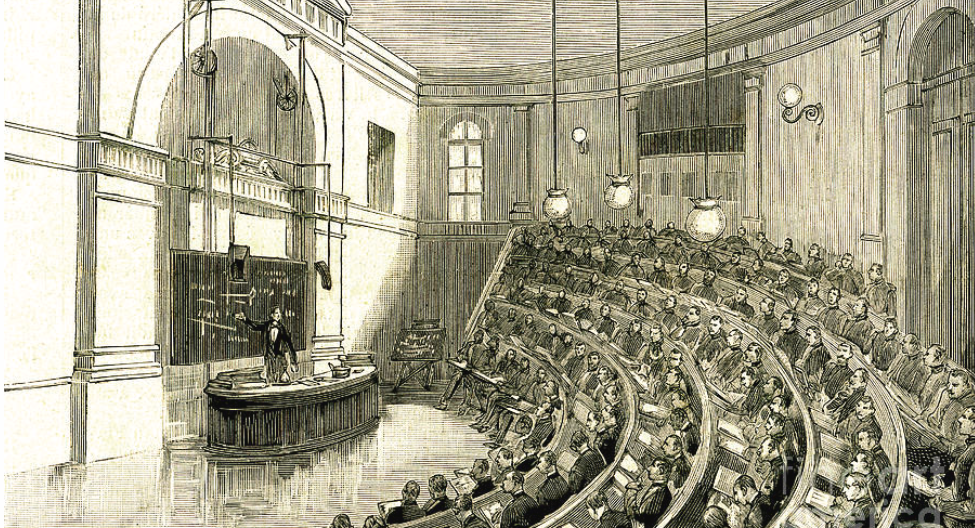The HSOY Speakers Bureau
The Historical Society of Old Yarmouth offers the following speakers and topics for local organizations by request. Talks last approximately 30-40 minutes followed by a question and answer period and most include visual aids. A $100 donation to the Society is politely requested for all talks. To learn more about the Speakers Bureau or to request a presentation, please contact our office at info@hsoy.org.
Topic Descriptions [Presenter]:
American Portraits by John Singleton Copley [Mary Woodward]
Copley was born in Boston in 1738 into a poor family. His prodigious talent appears to have come naturally and without formal training. He rose from an impoverished start to move in Boston’s highest social circles through his self-taught talent, industrious work ethic and ambition. He is roundly recognized as the finest portrait painter in Colonial America. We will explore the subjects he painted and the reasons for his success. We will learn how he became the portraitist of rebels and royalists alike, following his life and work against the backdrop of the political changes that were playing out in Boston.
Architectural history/architectural styles [Gary Sachau]
This presentation will focus on the variety of historic architectural styles found in Yarmouth. The presentation will be in PowerPoint and will require a computer, projector and screen/white space to be provided by the host organization or group. I will work with the host in advance of the presentation date regarding loading requirements to a suitable computer.
Captains Fantastic: the three brothers Eldridge of Yarmouth Port [Vin Miles]
Asa Eldridge may be the most famous sea captain in his family, but his brothers John and Edward were also distinguished shipmasters. Indeed, the three brothers were possibly the only three mariners ever to achieve a singular feat: to captain a ship from each of the three most important classes that defined the golden age of US maritime history.
Concealed Objects: Colonial Thoughts on Witchcraft Prevention [Steve Flack]
This presentation will discuss the peculiar colonial traditions of inserting objects in New England house structures, to ward off witchcraft spells. Such traditions span the 17 th through 19 th centuries, with inserted objects designed to ward off specific incantations, and offer general protection to a house’s occupants. It will involve a Power Point presentation and therefore will require a projector and screen or large white-space. I can provide the presentation ahead of time to a suitable computer or bring my own Apple computer.
Federal programs that encourage preservation of historic properties (and their relationship to local government programs) [Gary Sachau]
This presentation will focus on Federal programs designed to foster the preservation of historic buildings. In the context of Yarmouth, the National Register of Historic Places and the Historic Rehabilitation Tax Credit program are two such programs that will be discussed. The relationship to local historic preservation programs will also be explored. The presentation will be in PowerPoint and will require a computer, projector and screen/white space to be provided by the host organization or group. I will work with the host in advance of the presentation date regarding loading requirements to a suitable computer.
Herbs & Perennials for a Historic-minded Garden [Steve Flack]
This presentation will discuss different planting schemes for each of the major architectural periods represented on Cape Cod, including colonial, Victorian, and Arts & Crafts. It will involve a Power Point presentation and therefore will require a projector and screen or large white-space. I can provide the presentation ahead of time to a suitable computer or bring my own computer.
Long Before Titanic: Deadly losses of early transatlantic steamships [Vin Miles]
The Titanic was far from the first ocean liner to be lost on the Atlantic. As this talk will recount, in the first two decades after steam-powered liners made their debut in 1838, eight were lost; by the end of the century, the number was seventeen, with a cumulative death toll to more than double the Titanic’s.
Mary Thacher, our hometown heroine [Mary Woodward]
The Thacher family arrived in America in the early 1600s, part of the Great Puritan Migration from England to the Colonies. Through their determination to survive and thrive, the Thachers played an important role in the creation of the town of Yarmouth Port that we see around us today. In this presentation we will focus on Mary Thacher’s life as she continued her family’s legacy by supporting charities and initiatives related to historic preservation and environmental conservation.
Perspectives on John Adams (in costume) [Steve Flack]
This presentation will attempt to discuss aspects of John Adams’ life with a modern slant, comparing his trials and tribulations to those of modern-day Americans. The presentation will be in costume and will run for 30-40 minutes with a question and answer opportunity throughout. It will be interactive in nature.
The History of Local Saltworks [Bob Kelley]
Yarmouth’s saltworks industry, that turned sea water into salt using the method of solar evaporation, prevailed for one hundred years. Please join local historian and writer Bob Kelley, whose ancestors were salt manufacturers at Bass River, as he explains in this 45-minute lecture, who the entrepreneurs were who invented the process, where the saltworks were located throughout Yarmouth and the Cape, and what factors caused the rise and fall of this unique industry.
The Indigenous Reservation of Yarmouth [Bob Kelley]
Did you know that there was an Indigenous Reservation on 160 acres in Yarmouth? Where was it located, how long did it last, and how did the Indigenous Peoples live? In this 45-minute lecture historian Bob Kelley will answer these questions, explain who the Praying Indians were, and give a broader understanding of how the Indigenous Peoples of Yarmouth came to be Christianized.
The Lost Hero of Cape Cod: Asa Eldridge of Yarmouth Port [Vin Miles]
From a humble start in the galley of his uncle’s sloop, shuttling between Yarmouth Port and Boston, Asa Eldridge became one of the greatest sea captains of the 19th century. His most famous accomplishment was making what is still the fastest crossing of the Atlantic by a sailing ship. But this was only one of many highlights in a career that is highly informative about a period widely regarded as a golden era of US maritime history—but which ended in a mysterious tragedy.
The Quakers at Yarmouth [Bob Kelley]
When the first Quakers came to America in the mid-17th century, where did they live? Why were they still being persecuted in America as they had been in England? In this 45-minute lecture, tenth generation Quaker and historian Bob Kelley will focus on the Quakers migration to Yarmouth, their creation of Friends Village, and their impact on the livelihood and community of Yarmouth.
Transatlantic Train: Boston, Liverpool and Cape Cod [Vin Miles]
The Red Sox and Yankees are merely modern protagonists in the rivalry between Boston and New York that has existed since our country’s earliest days. In the 19 th century the key “battlefield” was transatlantic trade, and this talk will discuss the Boston shipowner who led the charge for his city during the 1840s and 1850s, with two of his captains from Cape Cod in the front line.

